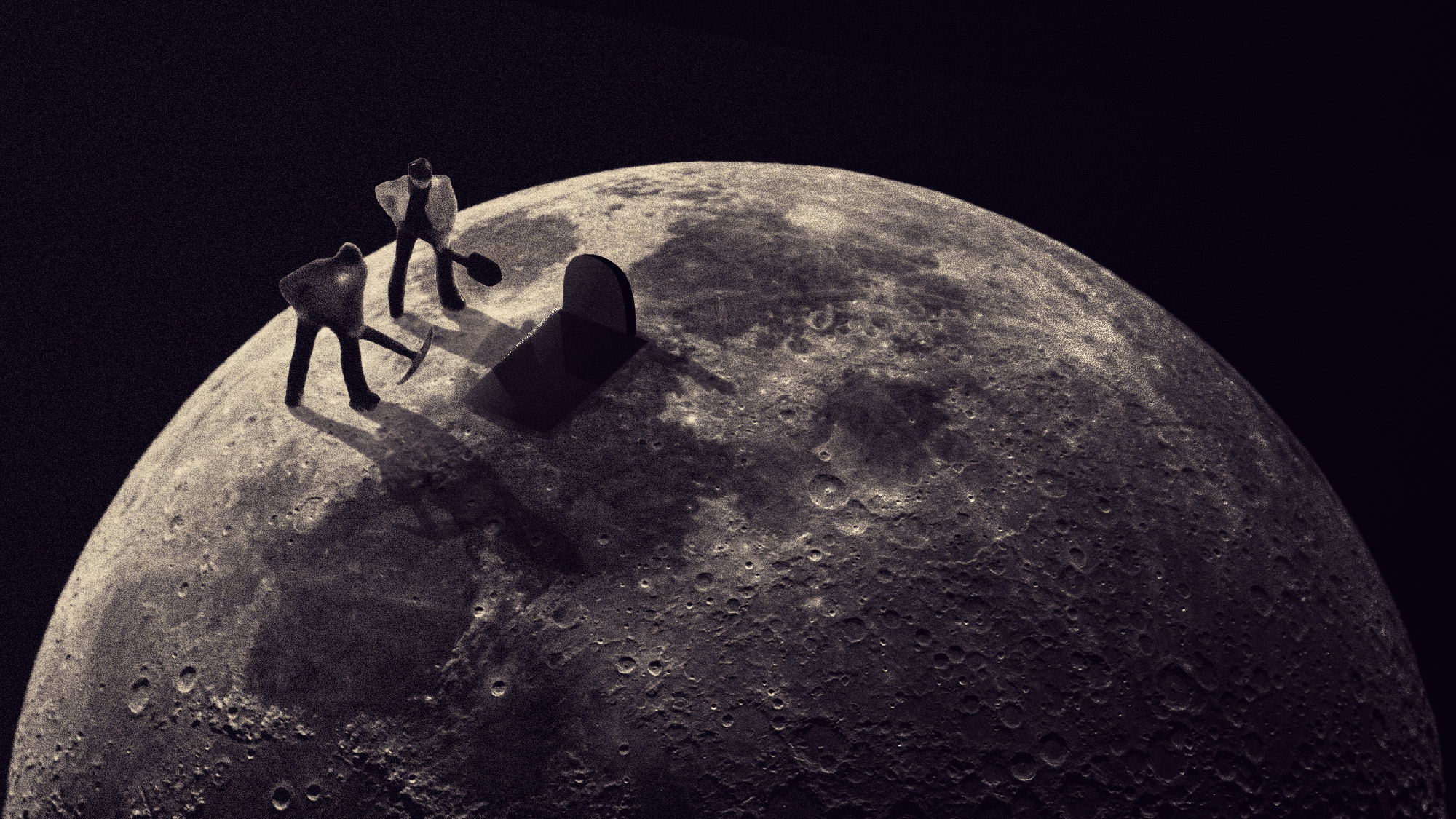The moon's exploitation sparks a legal and religious debate
The Navajo Nation are among the groups decrying the moon's usage as a dumping ground


A free daily email with the biggest news stories of the day – and the best features from TheWeek.com
You are now subscribed
Your newsletter sign-up was successful
While humans are expected to return to the lunar surface on the Artemis III mission as soon as 2026, there is another aspect of moon travel that is generating its fair share of controversy: the commercialization of the lunar body and the laws surrounding it.
While NASA is still finalizing its timeline for the Artemis program, a series of privately funded missions have been intending to use the moon as a sort of "dumping ground" for a variety of materials. This includes landers that could ship plastics, lunar advertisements and even human remains to the surface of the moon.
But while the prior Apollo missions have left equipment and landers on the moon, the idea of using the rock as a sort of waste site has not sat well with everybody. This includes the Navajo Nation, for whom the moon holds deep religious iconography and has led to the nation's leaders launching an effort to stop the practice. The Navajo, along with other Native American groups, have argued that the regulations currently in place allow for the unwarranted exploitation of the moon's surface.
The Week
Escape your echo chamber. Get the facts behind the news, plus analysis from multiple perspectives.

Sign up for The Week's Free Newsletters
From our morning news briefing to a weekly Good News Newsletter, get the best of The Week delivered directly to your inbox.
From our morning news briefing to a weekly Good News Newsletter, get the best of The Week delivered directly to your inbox.
What do the laws say?
At the moment — basically nothing. There are "no U.S. laws or standards outlining what is acceptable on the celestial body's surface," Reuters said. Under the current guidelines, almost any item can go to the moon as long as the U.S. Federal Aviation Administration can certify that the payload does not "jeopardize public health and safety ... U.S. national security ... or international obligations of the United States." This means that private space exploration companies, for now, can use the moon's surface mostly as they see fit.
Among the items being posited for a place on the moon's surface by these companies, per Reuters, include a can of a Japanese sports drink and a plan to erect a two-story Christian cross made of the moon's own dirt. This January also saw the launch of the first-ever commercial moon lander, Peregrine. Included on the spacecraft's payloads were the "cremated remains of at least 70 people and one dog, sent by two U.S. companies, Celestis and Elysium Space, which give people the opportunity to be interred on the moon," the science journal Nature said.
Many of the people behind these projects have spoken of its potential benefits. "Nobody owns the moon," Justin Park, the entrepreneur who wants to build the lunar cross, said to Reuters. "You don't want to stomp on traditions, but you can't hold the rest of the world back," adding that restrictive regulations would "destroy an industry before it gets off the ground."
Why are the Navajo and others angry?
The choice to send human remains to the moon was heavily criticized by the Navajo, which "regards the moon as sacred and considered the company's memorial mission sacrilege," Reuters said. A number of other Native American tribes also view the moon with similar reverence.
A free daily email with the biggest news stories of the day – and the best features from TheWeek.com
"The moon holds a sacred place in Navajo cosmology," Navajo Nation President Buu Nygren said in a statement. "The suggestion of transforming it into a resting place for human remains is deeply disturbing and unacceptable to our people and many other tribal nations."
Navajo officials met with Biden administration officials to ask for a delay of the mission. This "isn't the first time Navajo Nation has expressed concerns about burials on the moon," CNN said, as the Navajo cited NASA's Prospector mission, which in 1999 "deliberately crashed a spacecraft into the moon carrying the remains of former astronaut Eugene Shoemaker," as an example of further moon desecration.
Despite the Navajo objections, though, Peregrine was launched as planned on Jan. 8, carrying the human remains. However, the vessel encountered problems during the rocket separation stage and was unable to land on the moon. Peregrine eventually burned up in Earth's atmosphere on reentry.
Even though the remains did not make it to the moon's surface, the Navajo have not stopped pursuing further lunar regulations. "The unfortunate outcome of the Peregrine mission should not detract from the broader policy discussion we seek to encourage about the treatment of the moon," Justin Ahasteen, executive director of the Navajo's Washington, D.C., office, said to USA Today. "Just as we protect revered sites on Earth like the Grand Canyon from becoming landfills or graveyards, we urge our government and the international community to adopt similar practices for the moon."
Justin Klawans has worked as a staff writer at The Week since 2022. He began his career covering local news before joining Newsweek as a breaking news reporter, where he wrote about politics, national and global affairs, business, crime, sports, film, television and other news. Justin has also freelanced for outlets including Collider and United Press International.
